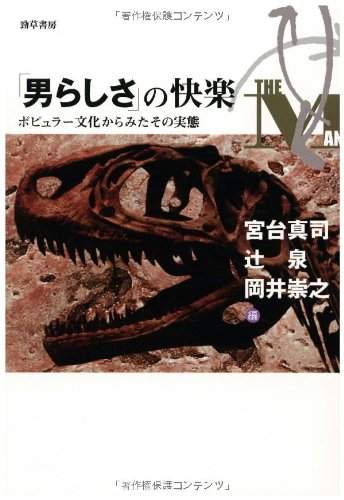2 0 0 0 「男らしさ」の快楽 : ポピュラー文化からみたその実態
- 著者
- 宮台真司 辻泉 岡井崇之編
- 出版者
- 勁草書房
- 巻号頁・発行日
- 2009
1 0 0 0 OA 言説分析の新たな展開 テレビのメッセージをめぐる研究動向
- 著者
- 岡井 崇之
- 出版者
- 日本メディア学会
- 雑誌
- マス・コミュニケーション研究 (ISSN:13411306)
- 巻号頁・発行日
- vol.64, pp.25-40, 2004-01-31 (Released:2017-10-06)
- 参考文献数
- 46
1 0 0 0 OA 研究ノート メディアと社会変容をめぐる新たな視座 : 言説分析からのアプローチ
- 著者
- 岡井 崇之
- 出版者
- 東洋英和女学院大学
- 雑誌
- 東洋英和大学院紀要 (ISSN:13497715)
- 巻号頁・発行日
- vol.8, pp.25-37, 2012-03-15
The purpose of this study is to consider the relationship between media discourse and socialchange. I examine them in theoretical aspect, and then I would like to provide new analytical framework. First, I review some discussions in media studies and sociology to analyze social change. Although the effects of mass media on social and cultural change have been discussed within mass communication theory, it has been considered that it is difficult to measure them strictly. Recently, the approach of discourse analysis has become increasingly important in media studies. But the focus on media discourse has shown a lack of interest in macro factors. It is also pointed out that social change theory in sociology raises many theoretical questions. Second, I suggest new perspectives in the study of discourse analysis, including the conversationalization of discourse and global discourse that articulates micro discourse and the macro structure of society. By the concept of the conversationalization of discourse, Fairclough suggested important implicationsfor the ideology of conversation and social change towards entertainment. On the other hand, Machin & Van Leeuwen have focused on globalization as discourse, analyzing the three aspects of genre, language, and image from the perspective of style and format. As a result, the following results were obtained: 1) Global media formats enter localities through a number of routes. Local media may copy global formats. 2) Media genre formats and technologies are increasingly globalized and homogenized. Such genres, formats, and technologies are not neutral containers of content. They carry meaning and value themselves. 3) In the above discussion, it is important that social change is traced to consumer capitalism. Finally, I concluded that that the accumulation of case studies in the context of Japanese society is important.

